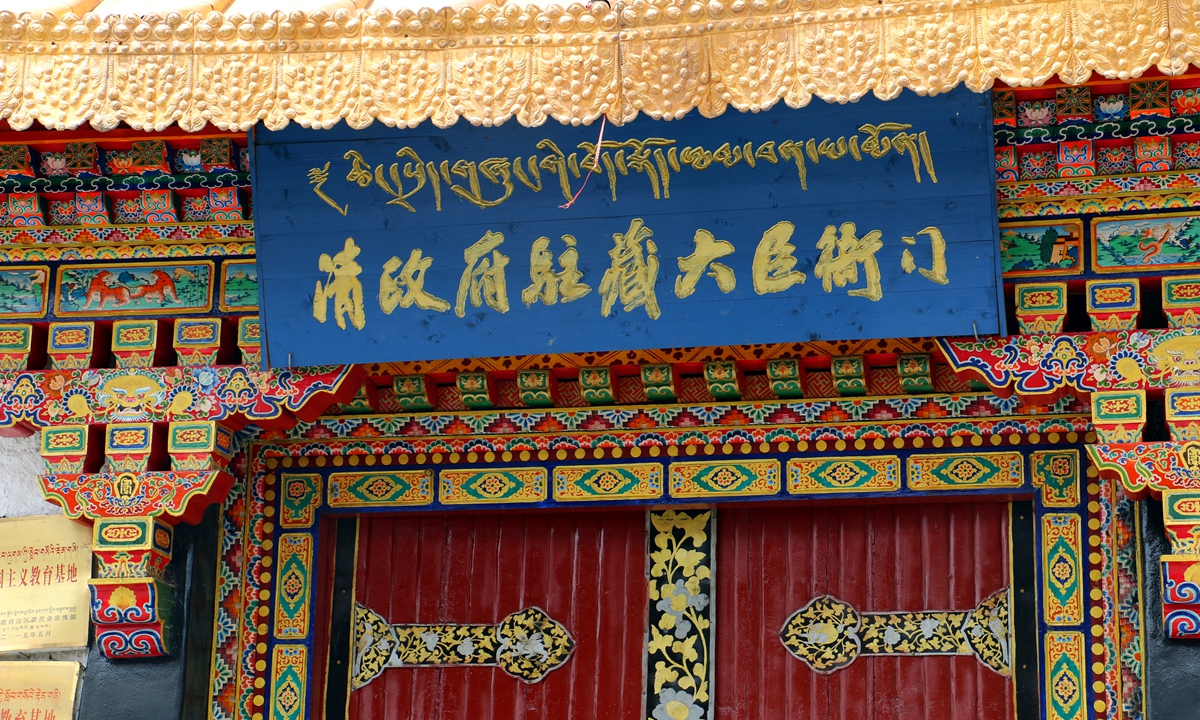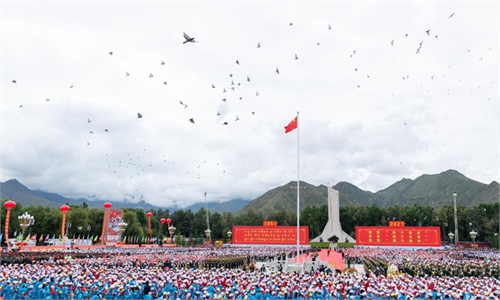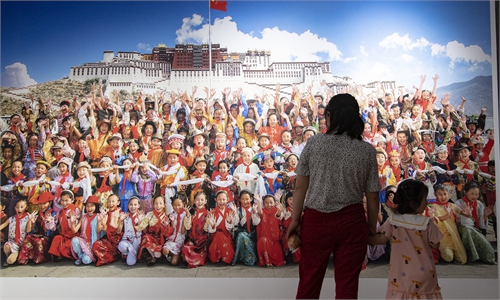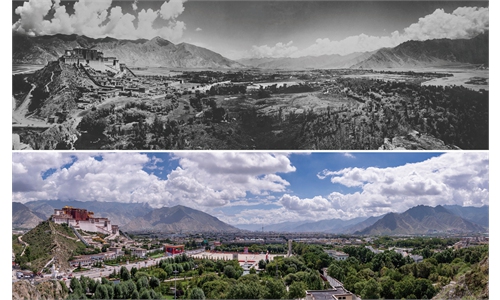Film on Qing Dynasty rule of Tibet region shows 'firm resolve to guard sovereignty, territory'

Museum of the old office of the ambans in the Qing Dynasty in Tibet. Photo: VCG
A soon-to-be-released film about the Qing Dynasty (1644-1911) successfully defending against invasions of the Tibet region by Gorkha (today's Nepal) has caught the attention of some media outside the Chinese mainland, which interpreted the film as a warning shot to the secessionist Dalai Lama clique.
Viewers of the trailer told the Global Times on Tuesday that they were intrigued by the lesser-known history of how the Qing Dynasty safeguarded its territory and the central government's rule in Tibet.
If the film sends any message to the Dalai Lama clique, it would be the consistent one of the Chinese government — it has a firm resolve to safeguard the nation's sovereignty and territorial integrity, and secessionist attempts are doomed to fail, observers said.
The film Ambans (the title of the Qing Dynasty's designated official in Tibet) was produced in 2016. The screening was scheduled in 2017 but postponed by four years. It will be released soon to commemorate Tibet's 70 years of peaceful liberation, according to the Tibet Autonomous Region government.
The events took place during the reign of Emperor Qianlong. The half-brother of the 6th Panchen Lama colluded with external forces to invade Tibet and raided the Tashilhunpo Monastery.
Emperor Qianlong sent generals who united troops of Tibetan, Han, Manchu and Mongolian ethnicities and dispelled the invaders, safeguarding territorial integrity and consolidating ethnic solidarity as well as the central government's rule in Tibet.
After the invasion, a system was established to determine the reincarnation of the living Buddhas — by drawing lots from a golden urn.
Mainland and Hong Kong actors and actresses starred in the film. A prospective viewer surnamed Liu told the Global Times that the quality of the trailer intrigued her.
The landscape of the remote region must be great on a theater screen, and the trailer suggested it is a film of power struggles, courage, love and loyalty to the country, Liu said on Tuesday.
"I am interested in how the Qing government managed troops of all ethnicities to protect its borders far away and maintain its effective rule in Tibet for the following hundreds of years," Liu said.
The golden urn system was passed down from history to identify living Buddhas, including the Dalai Lama and Panchen Lama, but the 14th Dalai Lama and his secessionist clique have been trying to deny the system to justify a successor of its secessionist agenda, observers said.
The film is just bringing lesser-known history to viewers. If outsiders try to dig out a message to the Dalai clique and its supporters, the message would be consistent — the 14th Dalai is not a pure religious person but a secessionist in exile.
The Chinese government has a firm resolve to safeguard the nation's sovereignty and territorial integrity, and any secessionist schemes are doomed to fail, experts said.




